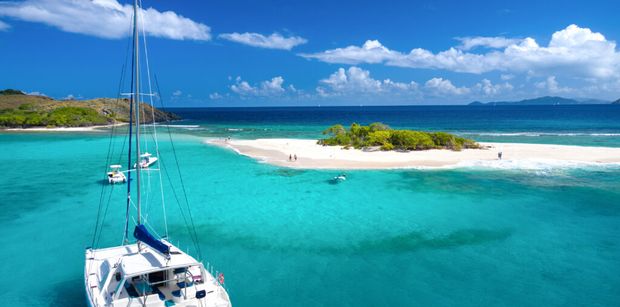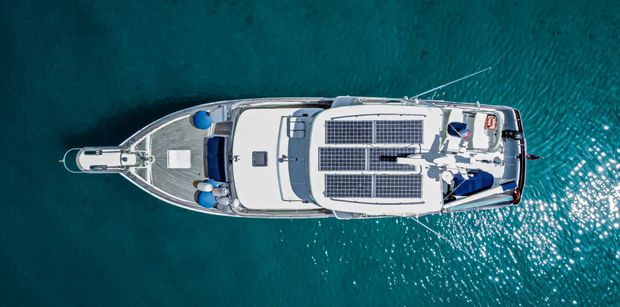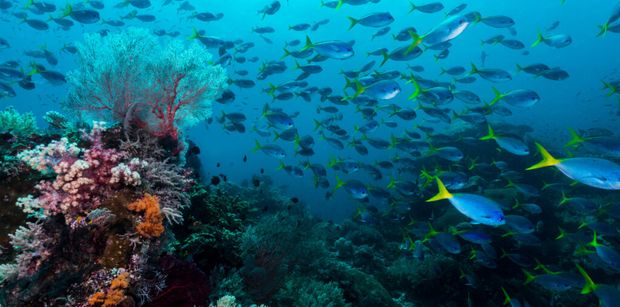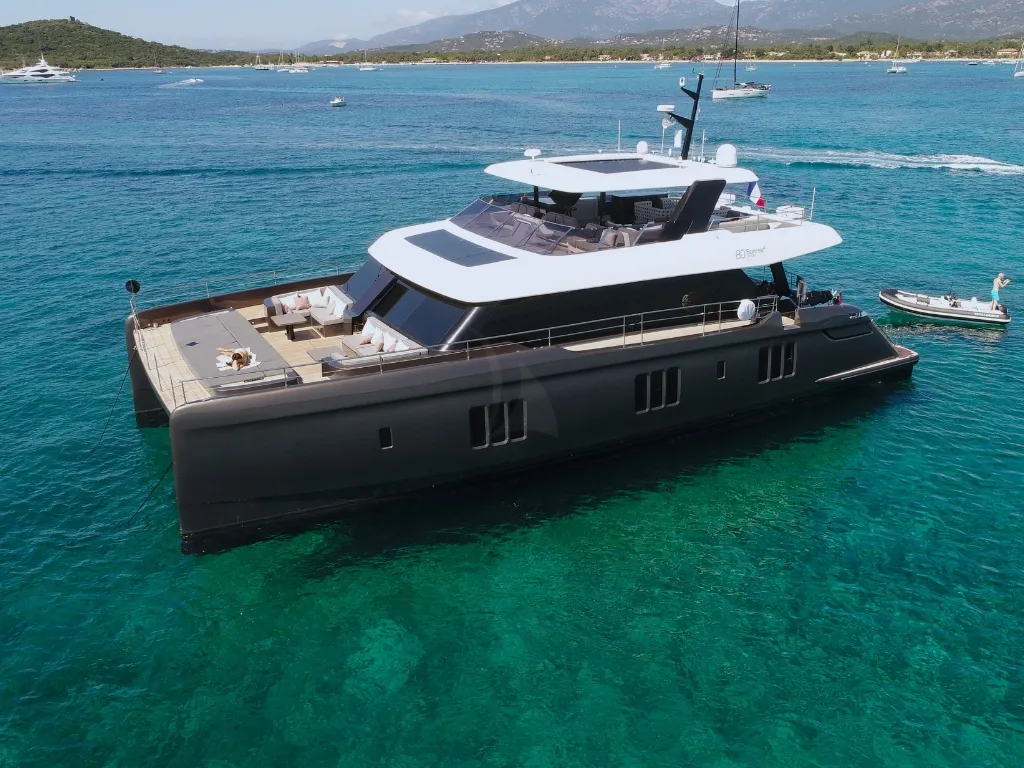
Boatbookings’ view of what’s hot for 2025!
Boatbookings Charter Experts are in constant contact with captains, boat owners and clients all over the world. We got together recently to discuss trends in the yachting business that we’re seeing for 2026. Here are the headlines!
More, bigger, quieter, cleaner catamarans and motor catamarans
This is not a new trend, but it shows no signs of slowing. People love catamarans! They are more fuel-efficient, rock less (helps prevent seasickness), can sail in shallow waters, have comfortable living spaces, cabins, and galleys, and generally provide for a superb charter. When Boatbookings was founded 20 years ago, catamarans were the exception, and sailing yachts were the rule. This has completely reversed itself.
As we’ve previously written, we love the Bali catamarans for their easy access to the foredeck, inside/outside salon, quality finishings, and overall fabulous experience. More about the advantages of Bali Catamarans.
Motor cats. Powered Catamarans are everywhere, and no longer look like a catamaran that is missing its mast! We have Power Cats in every key port, offering comfort, luxury, fuel efficiency, and quick, easy cruising to your destination.
And the catamarans are getting bigger! We’re seeing many more 50-60 foot cats in all ports, normally by Lagoon or Bali. Each foot of additional length effectively provides triple the added space, as it’s a three-dimensional boat. You won’t believe the difference in useable space between a 45- and 50-foot catamaran! We also see a lot more 70- and even 80-foot catamarans, specifically from famed luxury catamaran builder Sunreef. These truly are superyachts in catamaran form. Discover our top-rated Sunfeef yachts.

The beginning of the end of noisy, smelly generators and diesel motors
Propulsion and electrical systems of yachts of all sizes are undergoing a silent revolution. Instead of the diesel-powered props that have been standard in nearly all yachts for the past 100 years, newly installed motors are increasingly electric. They have much greater torque and are far quieter.
These motors need to be powered by electricity, of course. Increasingly that electricity comes from solar panels, wind turbines, and propellers that act as turbines when you’re sailing. This electricity is then stored in on-board batteries that have come down dramatically in price over the past 10 years. These boats normally have a backup generator, but often it doesn’t need to be used at all, making the boat completely self-sufficient and zero-emissions! No more coughing from the fumes when you’re snorkeling around the boat.
We’re beginning to see yachts that have enough battery capacity to run the air conditioning through the night, so the noise and rumble of the generator are completely eliminated. Bliss!
See our most eco-friendly and sustainable charter yachts here.

The constant search for unique, unspoiled, charter destinations
While the French Riviera, Alamfi Coast, Greek Islands, and the BVI never disappoint, we’re seeing increasing demand for more exotic locations. Our top new recommendation is Raja Ampat, for its extraordinary diving, unspoiled islands, and unique culture. We also continue to see increased interest in Tahiti/Bora Bora, which is a convenient, direct 8-hour flight from LA or San Francisco.
More updates coming soon – please contact us if you’re interested in any of the above destinations or yachts!



